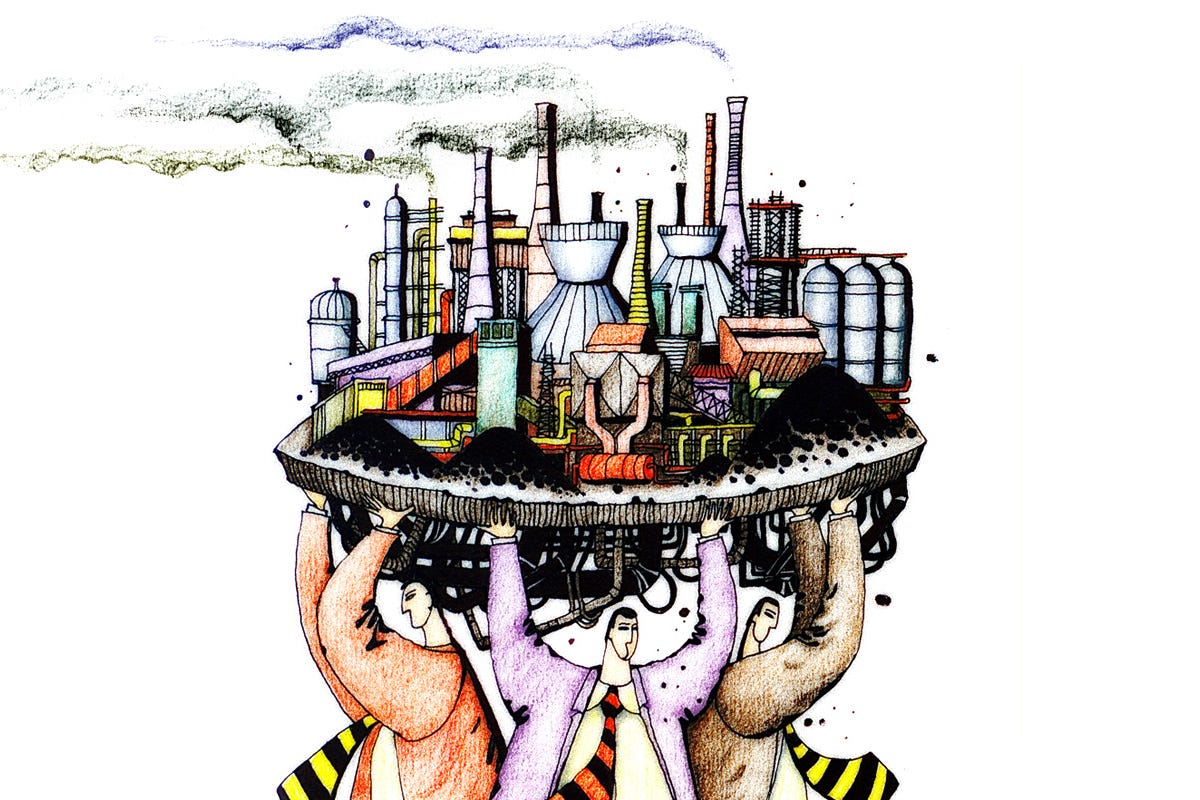🌳✨The Nexialist #0122
antigone in the amazon | sumaúma | natural capital | the biophilia paradox | cold noses | doktor civanim | telegenic | that amsterdam photo | technologies of convenience | prompt techniques
welcome to yet another seed-planting newsletter for your brain, the nexialist
hello, you! i hope this message finds you thriving and in high spirits (chatgpt showed me this greeting, and i’ll pretend it sounds natural). this week i have so many great things to share with you, so i’ll skip straight to the content. read until the end for forest content, sexy & psychedelic music and some clarity moments. enjoy! 🫀
1 year ago » 🎲✨The Nexialist #0072 : Buy me a Coffee | Randomizing Your Research | Randomized Life | Reading a Scientific Paper | Grounded Theory | Heptabase | Mercurial | Age of Anxiety | Why Do We Dream?
2 years ago » ⏩✨The Nexialist #0021 : Quicky Nexialist | Quiet Storm | Future of Sex | Sex in Space | Vintage Flirt | Gaudí | Weird Dreams | Amish Tech | Planning Toolbox | Future Laboratory and Decolonozing Foresight
🩸antigone in the amazon
last weekend i had the opportunity to watch antigone in the amazon and so far it’s the most important thing i have seen this year (thank you juan, for bringing this to my attention). in a mixed format of live theatre and interactive footage recorded in pará, they manage to bring the ancient greek myth of antigone to life through the ongoing war on nature (and its guardians) that has been going on since colonization.
For Antigone in the Amazone, Milo Rau and his team travel to the Brazilian state of Pará, where the forests burn due to the expanding soy monocultures and where nature gets devoured by capitalism. On an occupied piece of land, in collaboration with MST (Movimento dos Trabalhadores Sem Terra), the world’s largest landless workers’ movement, they create an allegorical play about the violent devastations and displacements caused by the modern state, which places private property above the traditional right to land.
i was surprised not only by the mix of brazilian portuguese, tucano and dutch (everything with subtitles), but also to hear the voices and perspectives of indigenous people like Kay Sara, Gracinha Donato, Célia Maracajà, Ailton Krenak and the militants of Movimento dos Trabalhadores Rurais sem Terra (MST), some of who are survivors of attacks and massacres.
'The intellectual renewal will not come from the gated communities where the authoritarian neoliberalism emerged. The philosophy of the coming era will come from the forests, from the favelas and the banlieues, from occupied houses and monocultures.' - Milo Rau, director
🌳sumaúma
last week i just found out about sumaúma, “journalism from the center of the world.” the portal has been around since last september and is led by Eliane Brum and Jonathan Watts together with local experienced journalists and reporters. samaúma brings news from the Amazon in portuguese, spanish and english and is based in altamira, the frontline and epicenter of land disputes and the war on nature. their call to action is to “amazonize yourself and the world,” which immediately brought me to the altamira 2042 and amazonizing the world around a year ago (tn#74).
Known as Sumaúma in Portuguese, the kapok is one of the largest trees in the Amazon rainforest. It joins heaven and earth, in the words of Juma Xipaia, the first female cacique, or leader, of the Xipaya people and advisor for the SUMAÚMA journalism platform. During their constant exchange with non-human forest beings, the roots of the kapok collect water, producing a sound that can be heard over long distances, according to Maria Francineide Ferreira, a beiradeira—as members of traditional Amazon forest communities are known. The tree’s roots draw water from the ground and release it into the sky, swelling the rivers flying above our heads and carrying rain to other regions, says Raimunda Gomes, another beiradeira from the Middle Xingu, who has a deep relationship with the ancient kapok that is her neighbour. The grandmother of socio-environmental activist Eldinei Souza used the soft silky white floss that surrounds the kapok seeds inside their pods to stuff the pillows and mattresses where her family lay down to dream.
In the Amazon, just say the word Sumaúma and everyone will have a story to tell. That’s why we chose the name for our journalism platform. We want to tell stories that live here, in the Amazon. We also want to tell stories from other parts of the world, but in a different way–from the perspective of forest peoples, as well as the most rigorous science. We will work to have these stories reverberate far and wide, helping irrigate the public debate and expand flying rivers of ideas that can be converted into action. We believe in the power of storytelling and in the power of journalism that deserves this name because it is done ethically, scrupulously, and independently.
🌎natural capital
“none of the world’s top industries would be profitable if they paid for the natural capital they use.” nothing new under the sun, but a good way for people to understand why some countries and industries don’t want to commit to green shifts and policies: they wouldn't be profitable 🤷
The notion of “externalities” has become familiar in environmental circles. It refers to costs imposed by businesses that are not paid for by those businesses. For instance, industrial processes can put pollutants in the air that increase public health costs, but the public, not the polluting businesses, picks up the tab. In this way, businesses privatize profits and publicize costs.
while this kind of market-oriented thought (putting a price on the unpriceable) is not the best way to go, maybe it does the work of making people understand the extractivist principle/ main-feature of our current capitalist situation.
🏕️the biophilia paradox

clive thompson traces the history of the biophilia term and movement and reminds us how we are much more dependent on nature than nature is on us, or the biophilia paradox:
It’s quite an irony, eh? Biophilia is asymmetric. We have biophilia, but nature doesn’t have “anthrophilia”. In fact it’s the opposite: If humanity were to vanish tomorrow, the remaining plants and animals would set about rapidly reclaiming all the asphalted-over world we’ve created. They’d have zero problem with us being gone!
it does make me think about the forest peoples who are defending nature. in that sense, i asked myself if the current capitalist model is a biophobic system. i mean, it destroys nature at the cost of profit. but actually it loves nature in a toxic/abusive way since it exploits it.
👃cold noses
this was the first time i listened to juliana, this colombian powerhouse who hypnotized me with her storytelling skills. she’s telling the tragedy of two lovers involved in crimes, a tale about how everything has a consequence. the official video is quite a show in a cabaret style.
🩺doktor civanim
altin gün is a turkish psychedelic rock band based in amsterdam, and this new song is so danceable. not much to say, just press play.
📺telegenic
adjective: tele·ge·nic ˌte-lə-ˈje-nik
: well-suited to the medium of television
especially : having an appearance and manner that are markedly attractive to television viewers
i had never heard of telegenic before, only photogenic. i like the vintage sound of it.
🚲that amsterdam photo
i came across this in the r/amsterdam and it is so precious. coincidently i’ve had this exact spot listed as one of my favorite random spots in my amsterdam guide.
maybe you have seen this photo of amsterdam somewhere since it’s an ikea staple. then there are all these questions about it: aren’t there better photos of the city? who took this photo? who chose this and why? there is such a fascinating story behind it, or mostly about the people behind it. thank you tom roes for telling this story.
📱technologies of convenience
this piece by l. m. sacasas brought a new point of view to the table (at least for me) when it comes to technology and the whole ai buzz: why an easier life is not necessarily happier. i saw this text on the sentier’s newsletter and i want to read everything. he brings back an essay he wrote nearly 10 years ago, in which he takes three essays from tim wu as a point of departure, and then pivots into albert borgmann’s text. it reminded me of that argument that money does bring us happiness, but up until a point. so the abundance of convenience might also have to be kept in check.
Like Tim Wu, Borgmann does believe that the greater comfort and ease promised by technology does not necessarily translate into greater satisfaction or happiness. There is a point at which the gains made by technology stop yielding meaningful satisfaction. Wu believes this is so because of “our biological need to be challenged.” There’s certainly something to that. I made a similar argument some time ago in opposing the idea of a frictionless life. Borgmann’s analysis, however, adds two more important considerations: bodily and social engagement.
“Physical engagement is not simply physical contact,” Borgmann explains, “but the experience of the world through the manifold sensibility of the body.” He then adds, “sensibility is sharpened and strengthened in skill … Skill, in turn, is bound up with social engagement.”
💬prompt techniques
michell zappa’s weekly newsletter on AI, artificial insights, is a great selection of thoughtful content about ai. this image came in quite handy, as a way to play with chatgtp. read the latest one: Robots are parts of corporations that we have stuck inside our houses
see you next week, biophilics! 🫀
❓If you want to know what a Nexialist is, click here.
🔎If you want to see what I’ve already posted, visit the archive and use the search engine. Even I do that a lot.
💌I want to know what you think/who you are! Your feedback is highly appreciated; you can e-mail me or fill in this short survey. Thank you! 🙏🏻
🔌Let’s Collab?
I truly believe innovation comes from bringing improbable areas together, and that’s why I called this project The Nexialist. Some sectors are known to be self-referencing and hermetic. Sometimes teams are on autopilot mode, focused on the daily grind, which hinders innovation. As a Nexialist, I like to burst these bubbles, bringing references from different areas, and maintaining teams inspired and connected to the Zeitgeist.
I offer inspiration sessions called Brainsparks, creative desk research (Zeitgeist Boost), Plug’n’Play deals for workshops and sprints, and other bespoke formats. If you want to know more about this, send me an e-mail with your challenge(s) and we can figure something out together. Check out my website and some work I’ve done below:







